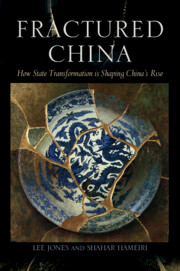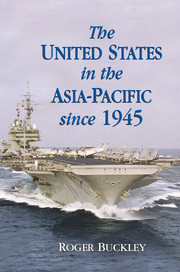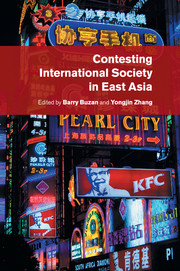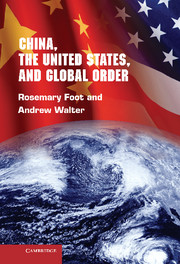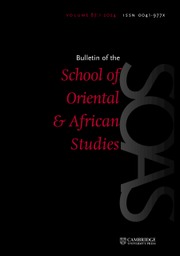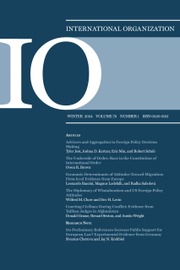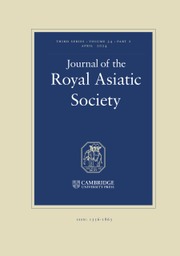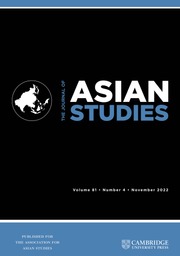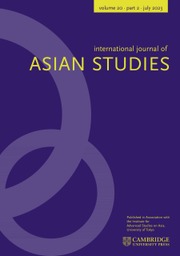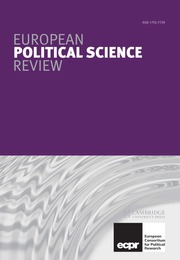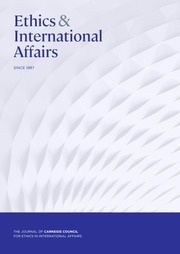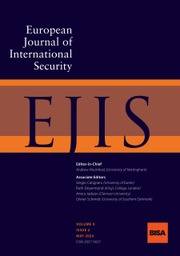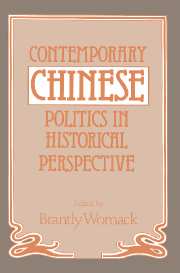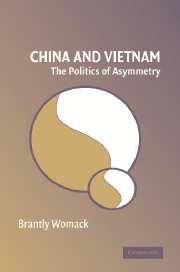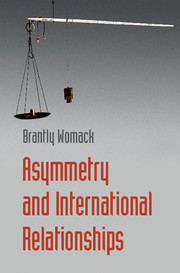Recentering Pacific Asia
Regional China and World Order
- Author: Brantly Womack, University of Virginia, Charlottesville
- Date Published: August 2023
- availability: Available
- format: Hardback
- isbn: 9781009393812
Hardback
Other available formats:
Paperback, eBook
Looking for an inspection copy?
This title is not currently available on inspection
-
The Pacific Rim of Asia – Pacific Asia – is now the world's largest and most cohesive economic region, and China has returned to its center. China's global outlook is shaped by its regional experience, first as a pre-modern Asian center, then displaced by Western-oriented modernization, and now returning as a central producer and market in a globalized region. Developments since 2008 have been so rapid that future directions are uncertain, but China's presence, population, and production guarantee it a key role. As a global competitor, China has awakened American anxieties and the US-China rivalry has become a major concern for the rest of the world. However, rather than facing a power transition between hegemons, the US and China are primary nodes in a multi-layered, interconnected global matrix that neither can control. Brantly Womack argues that Pacific Asia is now the key venue for working out a new world order.
Read more- Stresses the importance of firstly understanding China in its own region, followed by the challenge of rethinking the global order in terms of a multinodal matrix rather than a bipolar competition of great powers.
- Provides background on the evolution of the Pacific Asian configuration, including China's premodern centrality as well as the splintering of the region by European colonialism.
- Aided by commentaries from four of Asia's leading thinkers about international relations: Professor Wang Gungwu (National University of Singapore), Professor Wu Yu-Shan (Academia Sinica Taiwan), Professor Qin Yaqing (Shandong University) and Professor Evelyn Goh (Australian National University).
Reviews & endorsements
'An articulate and innovative exploratory guide to the reemergence of a Sinocentric but politically diverse order in Pacific Asia, now the global economic center of gravity, and the systemic impacts of this on globalization and the ebbing hegemony of the West. The author's chapters are complemented by thoughtful commentaries from some of the very best scholars in the region - in Canberra, Qingdao, Singapore, and Taipei - and conclude with an insightful analysis of regional responses to Sino-American rivalry in the post-hegemonic age. Anyone interested in the rise of Pacific Asia and its likely effects on the global future will find this a most rewarding and thought-provoking read.' Chas W. Freeman, Jr, former US Assistant Secretary of Defense for International Security Affairs and US Chargé d'affaires a.i. at Beijing
See more reviews'The proportional change of China's role in Pacific Asia need not be seen as the existential threat that US strategic assessments assert. The countries of Pacific Asia increasingly are connected to China, while having considerable agency themselves. Pacific Asia is a splendid launching pad for what Womack calls a 'rethink' concerning how best to address the order transition that is occurring in this region and beyond. Womack invites commentary by four of Asia's most respected scholars, thereby embracing the intellectual connectivity he argues must become central to American thinking.' David M. Lampton, Hyman Professor and Director of China Studies, Emeritus, Johns Hopkins University–SAIS, and author of Rivers of Iron: Railroads and Chinese Power in Southeast Asia, with Selina Ho and Cheng-Chwee Kuik
'Recentering Pacific Asia is an interesting and original book, not only for Womack's insights and analysis but for the engagement of his four Asian commentators. It is also a refreshing antidote to entrenched thinking about the US-China rivalry in a renewed bipolar world order.' Anne-Marie Slaughter, author of The Chessboard and the Web: Strategies of Connection in a Networked World
'Whether a rising China will revive its historical 'centrality' in the Asian system or adapt to the realities of a decentered, complex, and multi-connected world is one of the most important questions for the twenty-first century. Combining his deep knowledge of East Asian history and a keen eye for contemporary trends in world order, Brantly Womack's new book is an indispensable resource for anyone looking for answers to that question.' Amitav Acharya, Distinguished Professor, American University, Washington, DC
''The major task facing the United States,' Brantly Womack argues, 'is not to counter China's centrality in Pacific Asia, but rather to understand both China and its region.' Womack provides this understanding, not just with an impressive analysis of Chinese goals and aspirations and the nature of the current global order, but also by providing the historical context for contemporary actions and aims.' Shaun Breslin, Department of Politics and International Studies, University of Warwick, and Co-Editor, The Pacific Review
'As a historian, I find the narrative of traditional China's management of centrality wonderfully comprehensive and engaging. Womack's work on asymmetry has done more than anything to capture and characterize the relationships within the tribute system, and he has brought this approach into the present in a fascinating book.' Timothy Brook, Professor Emeritus, Department of History, University of British Columbia, and author of Great State: China and the World
'How will the asymmetric rivalry between global US and regional China play out in a multinodal world shaped by local agency? In Recentering Pacific Asia, Womack historicizes the centrality of Pacific Asia in analytical depth and challenges us to rethink the future of world order by taking seriously the asymmetric parity power dynamics in 'China's region.' Insightful, provocative, and timely, it compels us to think differently about Pacific Asia as central to global order transition.' Yongjin Zhang, Professor of International Politics, University of Bristol
'Recommended.' S. C. Hart, Choice
Customer reviews
Not yet reviewed
Be the first to review
Review was not posted due to profanity
×Product details
- Date Published: August 2023
- format: Hardback
- isbn: 9781009393812
- length: 300 pages
- dimensions: 235 x 160 x 19 mm
- weight: 0.535kg
- availability: Available
Table of Contents
Introduction
1. Continuities in China's Pacific Asian centrality
2. Thin connectivity: traditional Chinese centrality
Commentary Wang Gungwu
3. Sharp connectivity: Western modernization and de-centered Pacific Asia
Commentary Wu Yu-Shan
4. Thick connectivity: the re-centering of Pacific Asia
Commentary Qin Yaqing
5. China, Pacific Asia, and reconfiguring a multinodal world
Commentary: Evelyn Goh
6. Global power rivalry, Pacific Asia, and world order.
Sorry, this resource is locked
Please register or sign in to request access. If you are having problems accessing these resources please email [email protected]
Register Sign in» Proceed
You are now leaving the Cambridge University Press website. Your eBook purchase and download will be completed by our partner www.ebooks.com. Please see the permission section of the www.ebooks.com catalogue page for details of the print & copy limits on our eBooks.
Continue ×Are you sure you want to delete your account?
This cannot be undone.
Thank you for your feedback which will help us improve our service.
If you requested a response, we will make sure to get back to you shortly.
×

